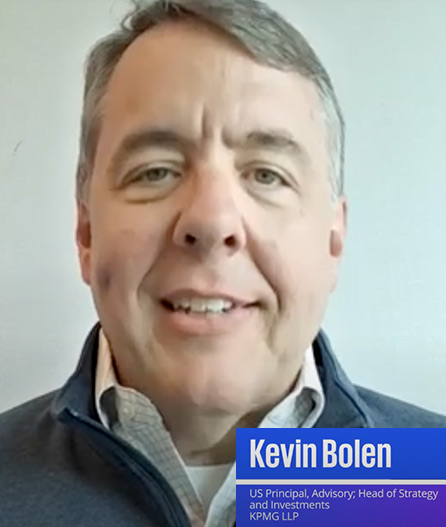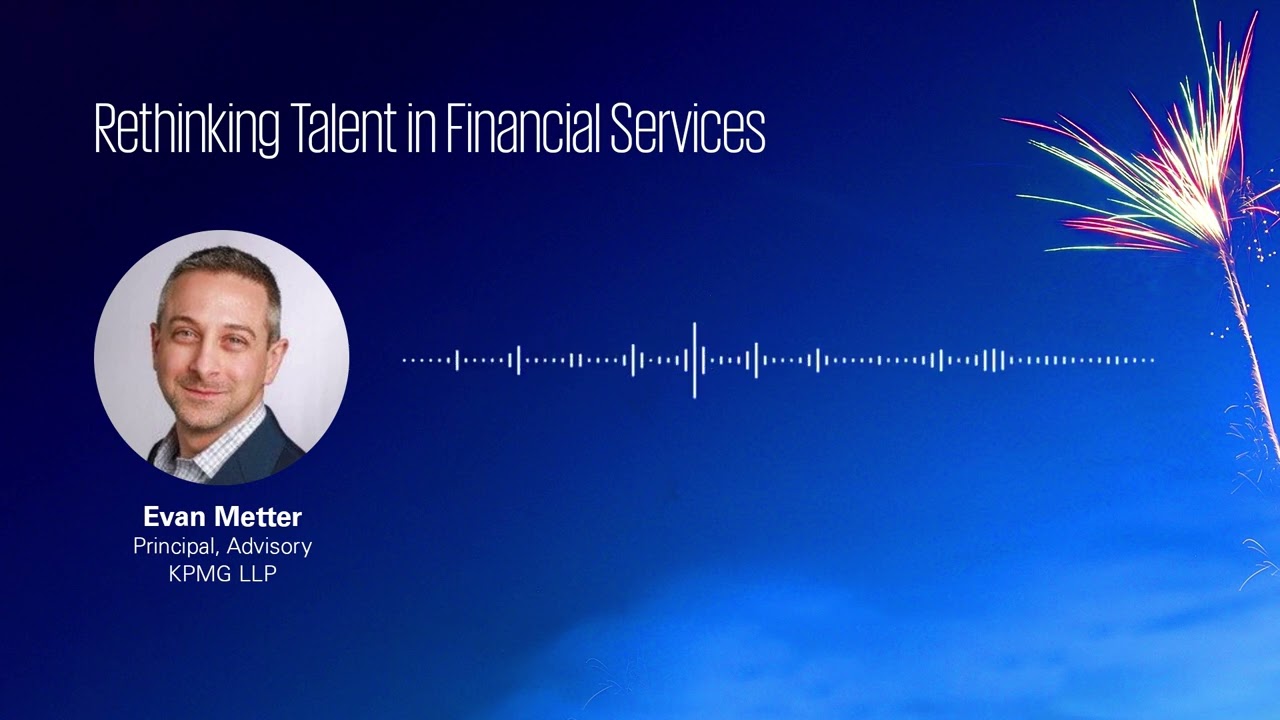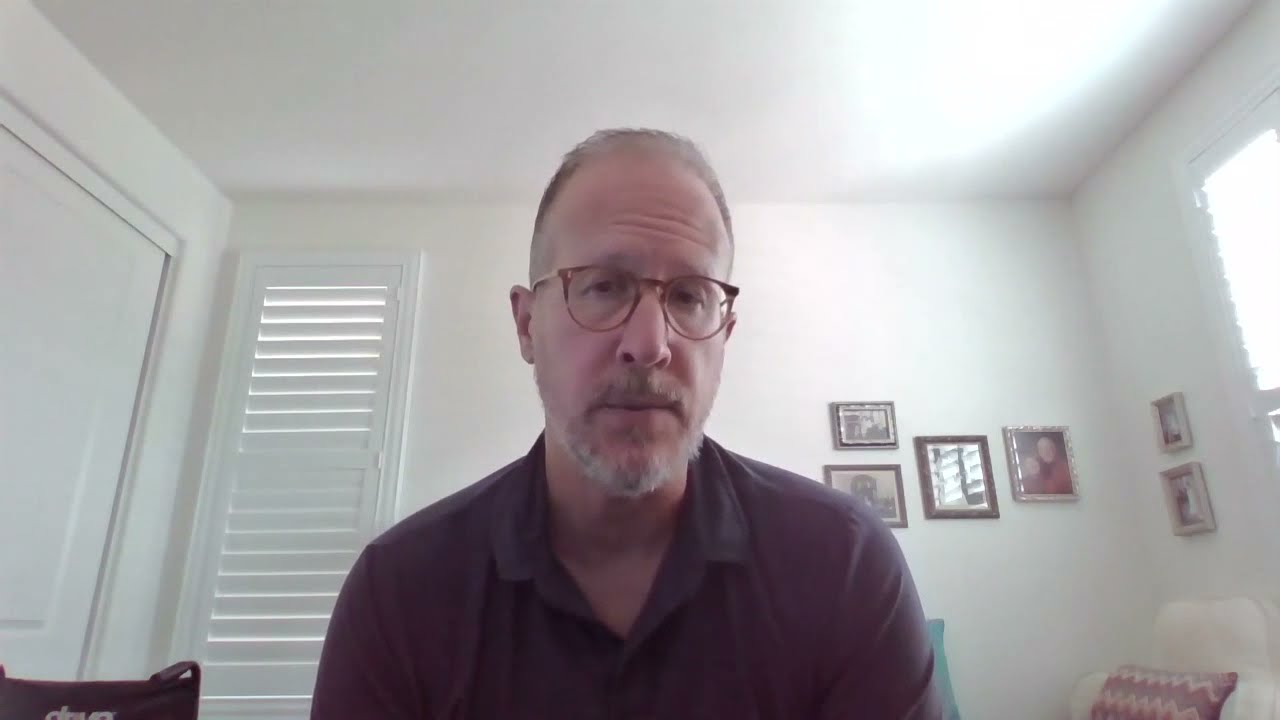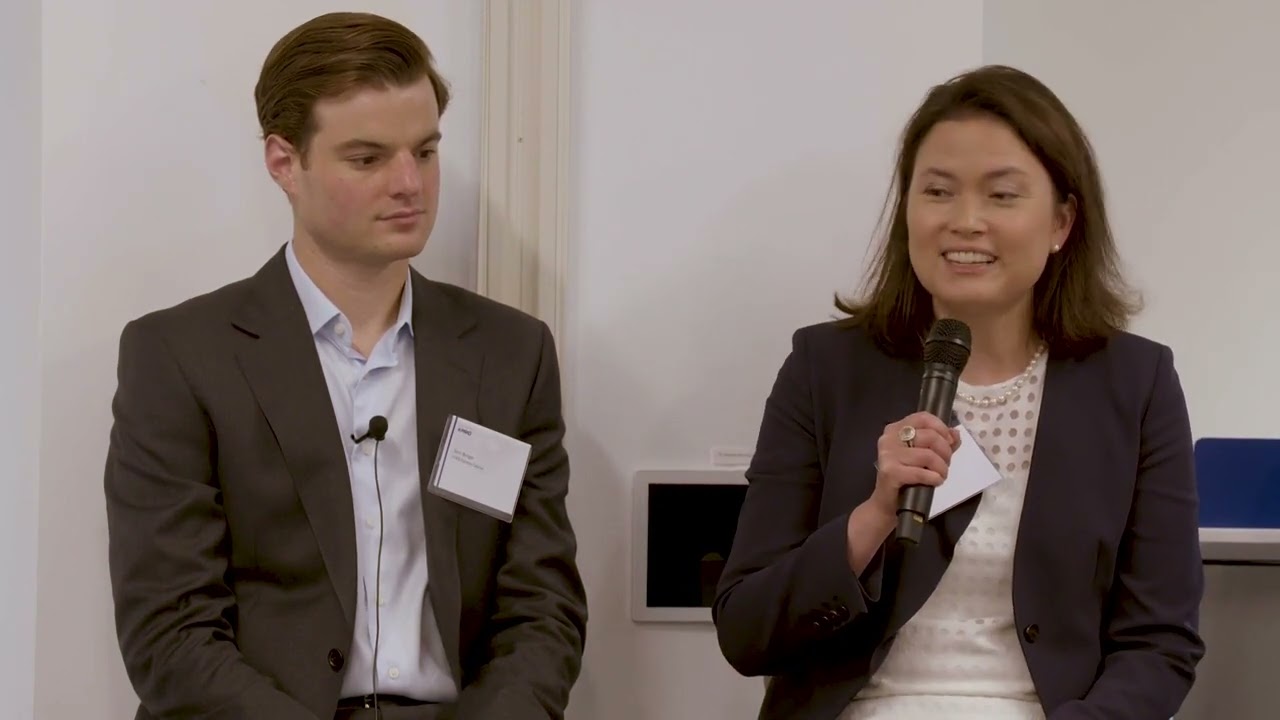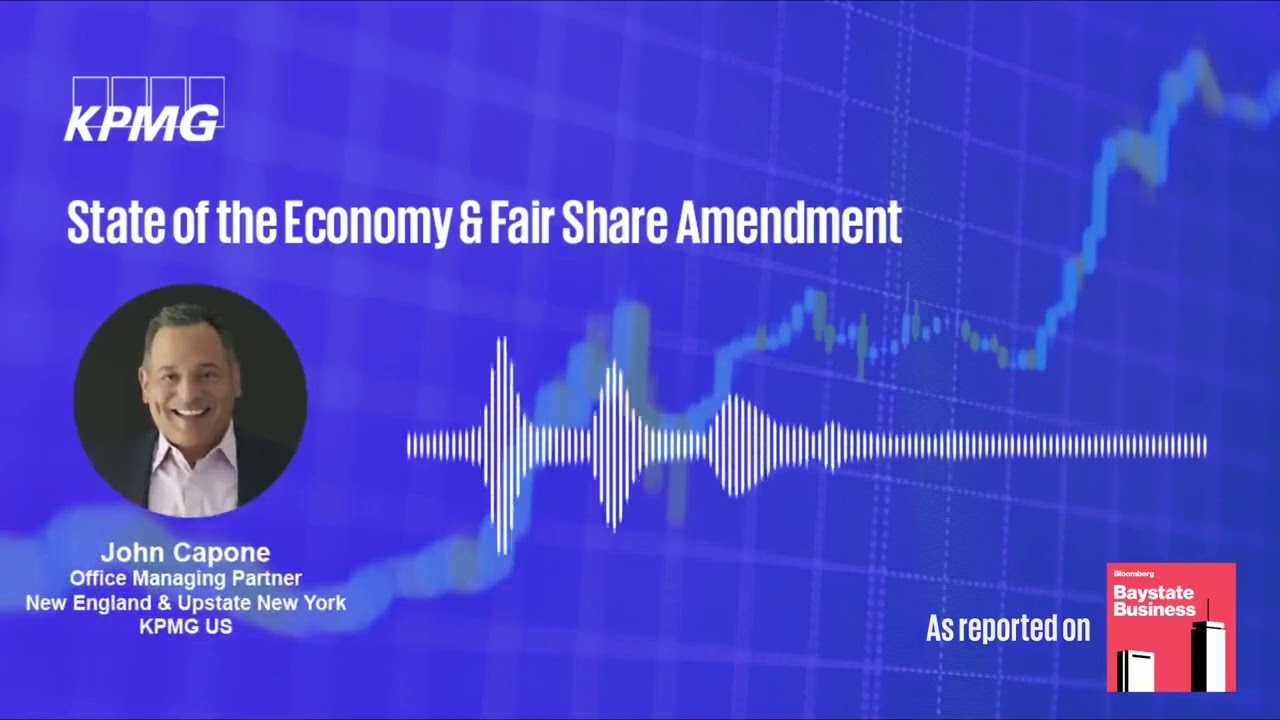In an uncertain economic environment, companies are adjusting their business strategies. KPMG US Chair and CEO Paul Knopp shares his perspective on a recession on the Bloomberg Baystate Business Hour podcast.
John Capone, Office Managing Partner at #KPMGBoston, shares with Invest: Boston how the downturn in the region may likely be short-lived as a result of the strength in sectors like life sciences, healthcare and financial services.
The recently released KPMG Venture Pulse Survey found the Americas, Europe and Asia all witnessed venture capital (VC) investment and the number of VC deals fall to levels not seen since early 2020.
Consumer holiday spending is expected to increase modestly this year – but not to the level of most retailers’ wish lists and below expected inflation levels.
In a recent survey by KPMG LLP, we found interesting data on the transformation of corporate tax departments.
The cloud has gone from being a trend to being inevitable in every digital initiative an organizationundertakes. To stay relevant in today’s fast-paced world, organizations must prioritize and adopt a cloud-first approach.
On the heels of the pandemic, CEOs are facing another turbulent period. The 2022 KPMG CEO Outlook is being released amid a business environment marred by high inflation, geopolitical tensions and fears of a recession.
Most of us already live in the metaverse, and it’s increasing presence in our lives is fostered by the rise of digital currency, gaming, NFTs and more.
Scott Rankin, Principal and U.S. Strategy Leader for KPMG, gives his opinion on how inflation is affecting small businesses and consumer spending.
Determining whether an environmental, social or governance fund is living up to its goals is leading companies, and boards, to draw up their own unique methods of measurement.
Suzanne St. George, Audit Managing Director, was named to Providence Business News' 40 Under Forty list for her work in bettering the community.
At KPMG’s Boston office on Tuesday, partner Kevin Bolen posed a question to a group of business people who gathered for the accounting firm’s Business Disruption Forum: “So, what is the metaverse?” Depending on who you ask, that’s a question likely to elicit eye rolls, at least outside of Silicon Valley.
Supply chains are facing a perfect storm of change. In response to disruption, organizations are rapidly digitizing their supply chain operations. Digital innovation in supply chain management improves customer service, cost, and efficiency. However, organizations are failing to address a critical element, people.
Even if the Russia-Ukraine war were to end today, its impact will be felt across the world for years. Corporate leaders must act now to plan for a different — and more uncertain — world. To shape their own future, resist taking a wait-and-see approach, and prepare for a range of possible scenarios.
As we plan for a post-pandemic world, companies are rethinking what the future of work looks like. Although the pendulum is still swinging, one thing is clear: the way we work has evolved and expectations of the workforce have changed. Headlines about “The Great Resignation” and “the war for talent” haven’t diminished and organizations struggle to fill open roles and retain top talent.
Mass. Business Roundtable survey finds more employers open to hiring out-of-state and that most will only require workers come back to the office a few days each week.
After four record-high quarters last year, venture capital investment declined in the first quarter of 2022, according to a quarterly report from KPMG Private Enterprise.
Each year, KPMG releases the Healthcare and Life Sciences Investment Outlook report and video series, an in-depth look at the dynamic trends in healthcare and life sciences (HCLS). For the report released in early 2022, KPMG analyzed how nine subsectors are using M&A to address competition, capture shifting demand, and pursue innovation in medical and clinical science, and in business/operating models.
Among global CEOs, cyber risk was ranked as the number one organizational threat, with data security taking a priority over all other technology investments. Due to incredible strides in remote working and collaboration, physical perimeters no longer exist and now, the responsibilities of a cyber security team are quickly expanding.
Recently, there has been a lot of discussion about the importance of conducting sanctions risk assessments. As the foundation upon which a compliance program is built, it is critical that such assessments are undertaken in a methodical and comprehensive manner.
The Great Resignation continues to impact every industry throughout the nation. According to the Bureau of Labor Statistics, 4.5 million people chose to leave their positions in November alone, an “all-time high.”
As a child, Noemi Campos Santana emigrated to the United States from Mexico with her family. Her father worked long hours in the construction industry, and she worked there as well. After getting her MBA, she started working at KPMG, helping clients navigate supply chain issues and developing an expertise in duty mitigation.
In a recent report on the future of finance, KPMG emphasizes that finance is ideally positioned to help organizations carry out environmental, social and governance (ESG) reporting efficiently, weave ESG into strategy and operations, and drive success in ESG.
It’s no secret there’s intense competition for top talent. Companies of all sizes and in all industries are trying to figure out how to deal with the “Great Resignation,” the informal name given to the trend of workers leaving their jobs in droves during the pandemic.
Noemi Santana on KPMG's Trade and Customs team was named to Boston Business Journal's 40 Under 40. Learn more about her journey and the positive impact she's making in the community.
C-suite leaders readily acknowledge that tax has “a seat at the table.” But a recent KPMG survey of 300 C-suite executives, primarily CFOs and CEOs, reveals significant differences in how leaders view and use their tax functions.
Released just before the 2021 holiday season, the most recent KPMG Consumer Pulse Survey found that consumer optimism is high with many shoppers reporting they are back to work, have money in their wallets and are ready to spend on holiday purchases both in-store and online.
Central bank digital currencies (CBDCs) have taken center stage amongst conversations between central banks, governments and private industry.
Released in 2021, the most recent KPMG Real Estate Data Strategy Study focused on gaining an understanding of the data management trends in the real estate industry.
Each year, the KPMG CEO Outlook provides an in-depth, multi-year outlook from thousands of global executives on enterprise and economic growth.
The Covid-19 pandemic rapidly made people the number one priority in nearly every organization around the world. As a result, HR leaders were pushed to the forefront of reshaping the way work gets done.
Conditioned by 14 months of sobering economic and health news, household financial impact, and workplace and schooling restrictions, consumers are responding with both optimism and wariness.
Going public by merging with a special-purpose acquisition company (SPAC), rather than by launching a traditional IPO, is worth considering for an increasing number of private companies.
How banks compete in the digital world has forever changed due to growing market acceptance of cryptoassets, the rapid advancement of cryptocurrency technology and the at-scale participation of financial institutions in the crypto market.
The latest KPMG Healthcare and Life Sciences Investment Outlook, informed by a survey of nearly 300 healthcare and life sciences executives, analyzed how companies in 10 industry subsectors have fared during the past unprecedented year of the global pandemic and what we might expect for deal activity in 2021 and beyond.

